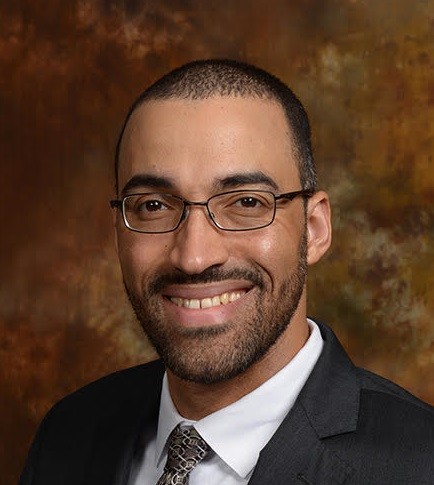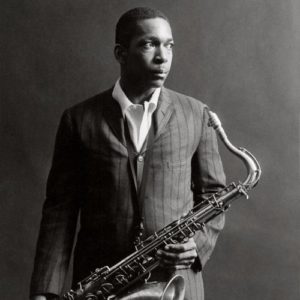 John Coltrane’s 1965 album, “A Love Supreme,” is considered by many to be one of the greatest jazz albums of all time. Its greatness lies not simply in its standing as a musical masterpiece, but because it is a spiritual tour de force. In 1957, Coltrane had been fired from Miles Davis’s band because his behavior had become too erratic in the midst of his struggles with drugs and alcohol. Over the course of the ensuing years, he sought deliverance from both of these addictions, and – through fits and starts – he eventually found it. Coltrane clearly understood this process in spiritual as well as physical terms, and his most famous album was the artistic climax of that journey.
John Coltrane’s 1965 album, “A Love Supreme,” is considered by many to be one of the greatest jazz albums of all time. Its greatness lies not simply in its standing as a musical masterpiece, but because it is a spiritual tour de force. In 1957, Coltrane had been fired from Miles Davis’s band because his behavior had become too erratic in the midst of his struggles with drugs and alcohol. Over the course of the ensuing years, he sought deliverance from both of these addictions, and – through fits and starts – he eventually found it. Coltrane clearly understood this process in spiritual as well as physical terms, and his most famous album was the artistic climax of that journey.
Coltrane left little doubt about the theological lens through which he was interpreting his struggles and what it had revealed to him, penning a poem sharing the same title as the album and including it with the liner notes:
I have seen God – I have seen ungodly –
none can be greater – none can compare to God. Thank you God.
He will remake us … He always has and He always will.
Coltrane considered his album to be “an offering” to God and suggested that it was the fruit of a “spiritual awakening” that had emerged from a period of self-confrontation following his dismissal by Davis in 1957.
“In this Trumpian season of rampant corruption and deep division, I have found myself reflecting often on the subject of ‘a love supreme’ in my preaching.”
What Coltrane recognized foremost of all was the mercy of God that created the opportunity for us to be defined not by our most significant shortcomings or darkest moments (whether they be fleeting or long-lasting), but instead by our capacity to persevere through those challenges in order to fully manifest our gifts and potential. A “love supreme” truly was the most appropriate title for Coltrane’s album because it articulates in succinct terms what defines a meaningful life for us as Christians.
In this Trumpian season of rampant corruption and deep division, I have found myself reflecting often on the subject of “a love supreme” in my preaching. I believe it resonates with a more powerful concept of who God is for us and who we should be for each other. A love supreme is fierce, faithful, steadfast and unmovable, and therefore is able to anchor us when we must weather the individual and corporate storms that assail us. But it is also empowers us to build the bonds of solidarity that will ultimately be the source of our shared prosperity – and the site of God’s glory.

By the time of his death in 1967, saxophonist and composer John Coltrane won recognition as one of the most talented, creative, and controversial figures in the history of jazz.
It is this same spirit that has inspired Terrance Hawkins and Clay Cooke to form the School of Love. This exciting and inspiring initiative toward “radical discipleship” begins this fall in my community of Winston-Salem, but I believe it will eventually reach much farther. The School of Love is a theologically-deliberate and Holy Spirit-driven response to what Hawkins calls the “post-racial apocalypse” that has been unveiled in the period since the killing of Trayvon Martin up through this current season in American culture.
As Hawkins points out, what gives time periods such as these their apocalyptic character is that the terrifying tumult that accompanies them reveals the inner thoughts of men and women; it exposes the center of the corporate soul. Hawkins writes: “For all its celebrations of ‘progress,’ the American empire remains enslaved by, trapped in, tethered to and haunted by the living legacy of white supremacy.”
While Cooke and Hawkins are quick to point out that their initiative is not to be confused with a racial reconciliation project, the cohorts that they are forming will be intentionally balanced along lines of race and class. Members of each cohort will commit to “common rhythms of love,” including confession, Sabbath practices, breaking bread together, justice-making activities and tarrying for the Holy Spirit. They will pray together regularly and give special attention in their shared time to “how the call to love neighbor speaks concretely to social location and historical context and subverts structural injustice and hierarchical power dynamics.”
“A meek and mild, surface-level love could not deliver John Coltrane from drug and alcohol addiction, anymore than it can deliver this nation from the corruption of the corporate soul that is a clear and present danger to us in this moment.”
When one reviews the mission and vision for the school, I think it can be said with musical artist Sade that this is “no ordinary love.” There is no gesture here towards the kumbaya tenor and tone that is typically associated with a sentimentalized and sanitized idea of Christian love. But that should really come as no surprise. A meek and mild, surface-level love could not deliver John Coltrane from drug and alcohol addiction, anymore than it can deliver this nation from the corruption of the corporate soul that is a clear and present danger to us in this moment. There is nothing supreme about that type of love, and it has been our unwillingness to accept this reality that has prevented us from healing the fabric of our national community and fulfilling the mandates of our faith as Christians.
At a recent event introducing the School of Love, Cooke spoke of the importance of learning how to “feel with” people who are different from us, and how this nurtures a sacred space where the radical solidarity of Christ can be made manifest. I believe it is in that solidarity that we will learn the power of a supreme love – and find the faith to follow Jesus all the way to the cross and back again.
As Coltrane declared, “No road is an easy one, but they all go back to God.” Along the way, we may find our own deliverance and our own renewal; we may find our own corporate masterpiece.
